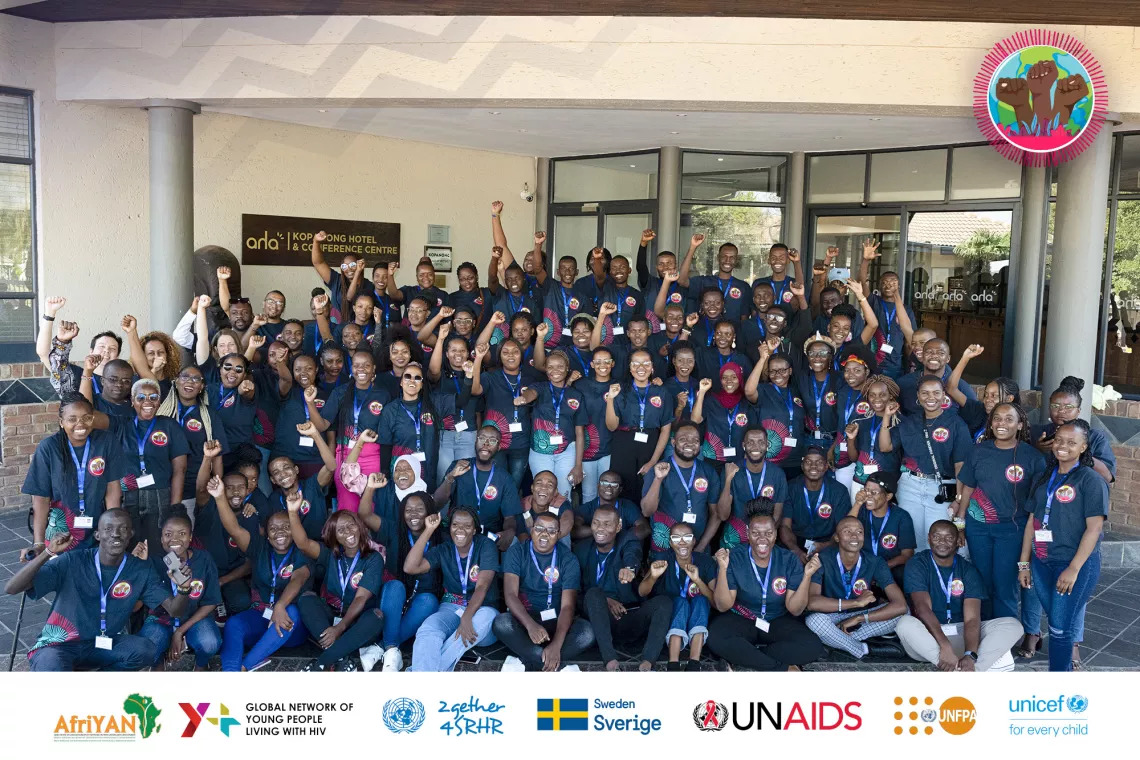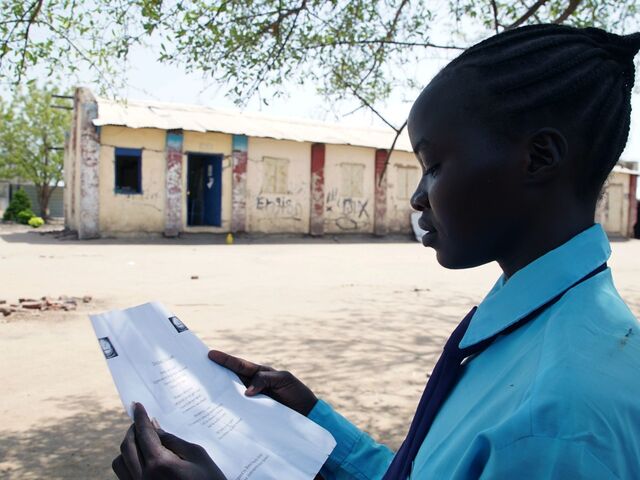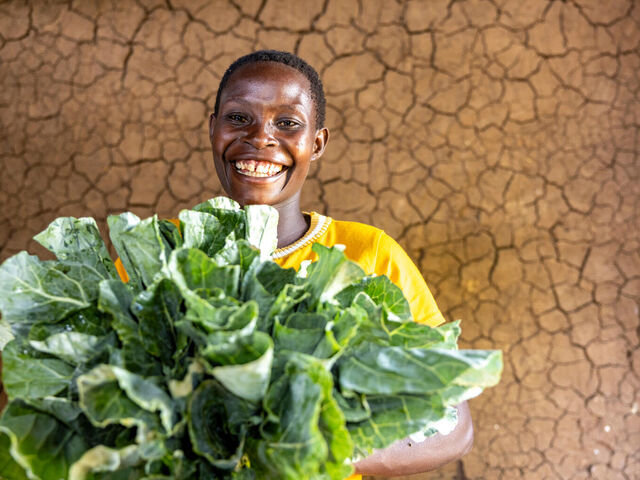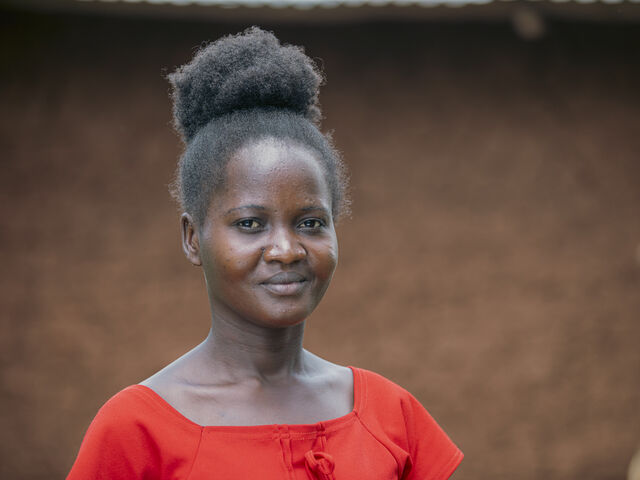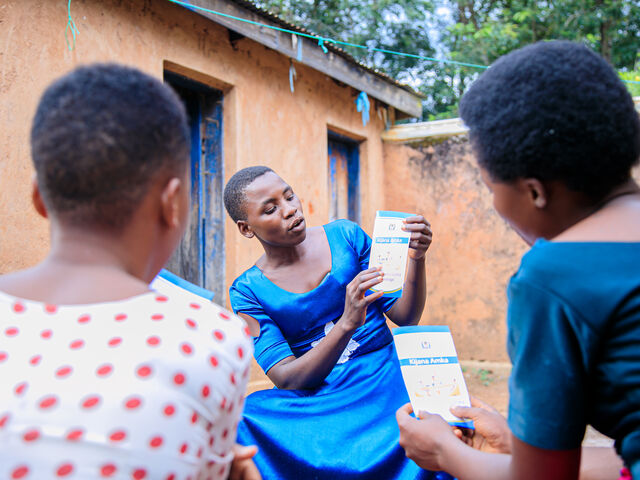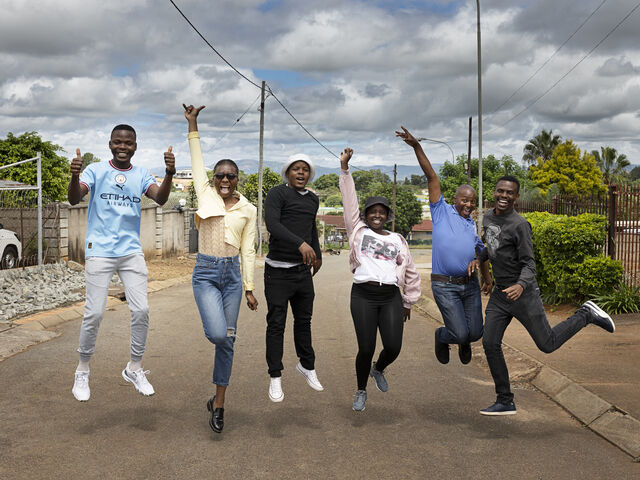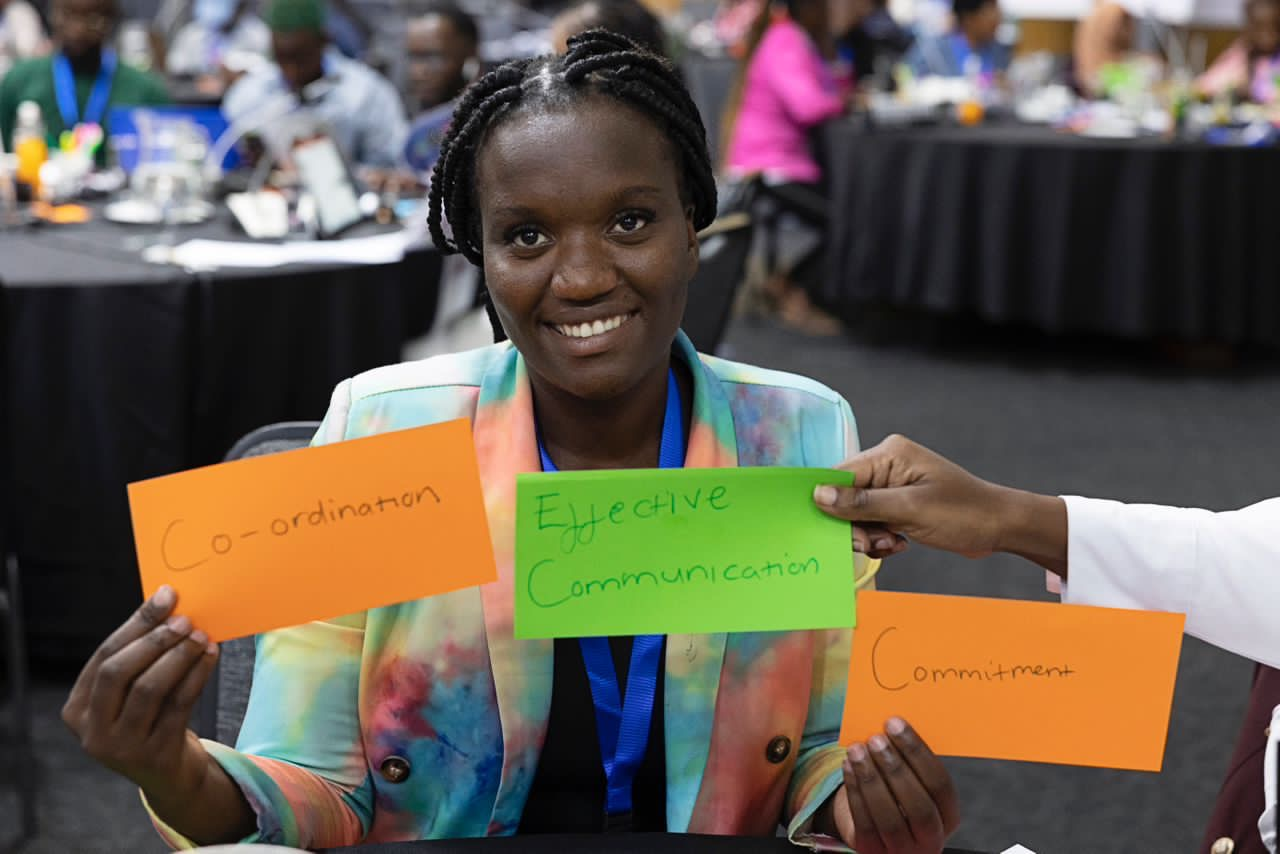
Ntombikayise, 24, didn’t feel neglected or sad when she learned her HIV status was positive. She’d recently started secondary school when her Mum sat her down and gently explained that they were both living with HIV.
“I wasn’t scared because Mum was already on treatment and helping others to accept their status and protect themselves with ART” (Antiretroviral Therapy, which suppresses the HIV virus).
Growing up in a protective environment sparked something in Ntombikayise to become a voice of change, especially in Zimbabwe where she says people are either infected or affected.
Joining school workshops on HIV cemented her need to speak out, when she heard pupils suggest they’d kill themselves if they had a positive status. She realized HIV was still seen as a death sentence, that people were not aware of the medical breakthroughs and the ability to live full and healthy lives even with a positive status.
“Living with HIV is not the same AIDS” explains Ntombikayise.
She asks people to educate themselves about the different diagnoses, because the stigma is harmful and archaic.
Ntombikayise mentors young peer counsellors who provide psychosocial support for adolescents living with HIV in Zimbabwe. These peer counsellors are known as Community Adolescent Treatment Supporters (CATS) and are trained to provide support for children and adolescents living with HIV, through home visits, clinic visits, support groups and mental health advice.
Evidence shows the CATS approach helps to increase young people’s adherence to ART and improves their mental health. It is now being implemented in 12 countries. This youth-led counselling approach was created by ‘Zvandiri’, which means ‘As I am’ in Shona
Adolescent girls continue to face the greatest risk of HIV infection. Globally, nearly 98,000 adolescent girls aged 10-19 were infected with HIV in 2022 – or 1,900 new infections every week.
Eastern and Southern Africa continues to carry the overwhelming burden of HIV infection among the 0-19 age group.

“I’m a carer of carers” says Ntombikayise, who refers young people for professional counselling, acts as a buddy and friend, and supports CATS mentors, who work across health facilities and face challenges with the attitudes of some health workers. “Too many health workers are not addressing the needs to young people. There are some basics like confidentiality and non-judgement which are still not happening.”
“Discrimination also has a long-lasting impact on self-confidence. “Self-stigma stops health seeking behaviour and adherence to ART, when young people give up on themselves, they give up their futures”.
The work of all peer mentors in Eastern and Southern Africa, the region with almost 70 per cent of the global burden of HIV, moves towards acceptance, overcoming stigma and receiving quality care. The support from peer providers helps because it allows young people to feel authentic and heard. The key is finding a way to envision the future.
“Every day I see the passion that CATs have for young people, and the willingness to continue to advocate for their rights. I see their dedication in supporting their communities and working to improve the lives of the young people they serve. It is my privilege to support them as they do this."
As a programme officer at the youth-led network, Zimbabwe Young Positives (ZY+), Ntombikayise mentors young people including CATs. ZY+ has grown and developed as a network with organisational support from Y+ Global through a partnership called Ground UP! This partnership offers resources and builds capacity on advocacy and leadership, leading to more impactful activities and a broader reach within their community. UNICEF and the regional joint UN programme 2gether 4 SRHR are investing in the leadership of youth-led SRHR and HIV networks in the region to elevate their abilities in influencing sustainable change. This programme offers platforms for opportunities for young leaders like Ntomikayise to share and advocate for change.
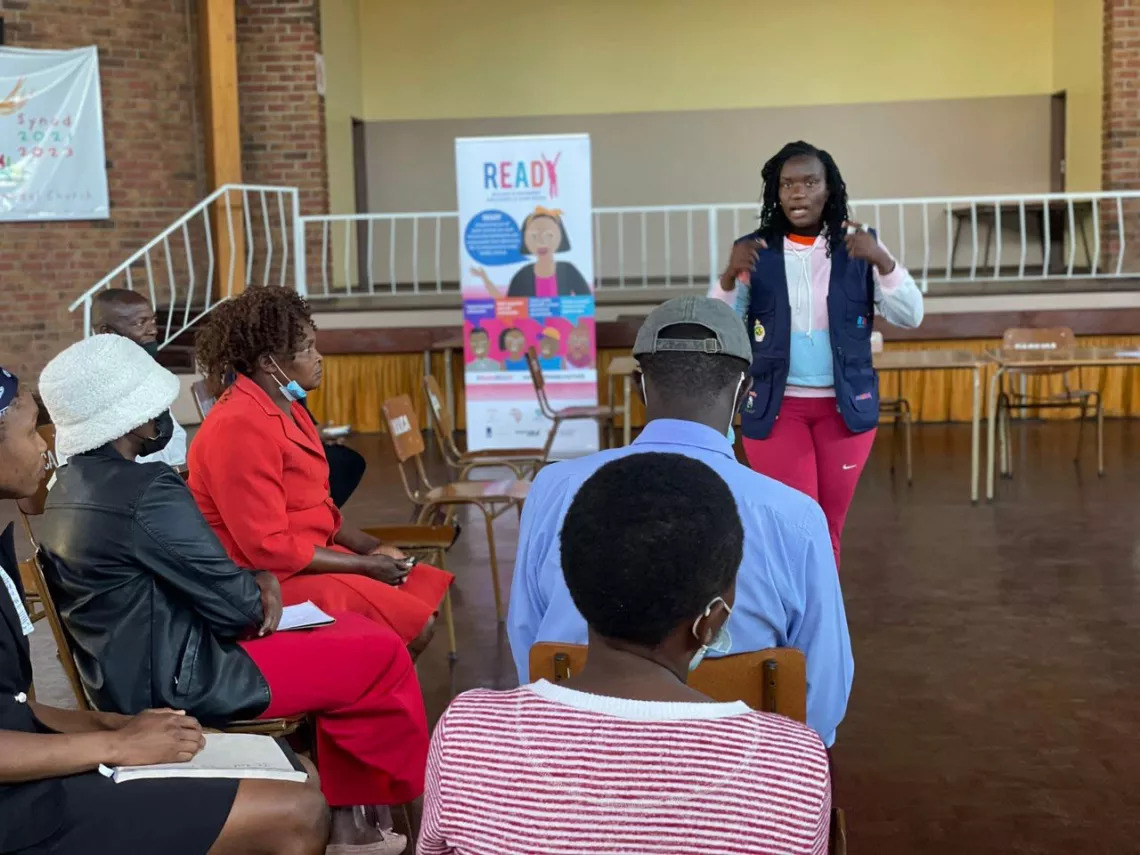
To support this work with evidence, UNICEF has partnered with University of Oxford and University of Cape Town as part of 2gether 4 SRHR.This brief identifies key risks, including bullying and stigma, and solutions such as positive parenting and social support, which can help improve mental health and HIV outcomes for adolescents.
Ntombikayise will spoke at at the ICASA conference in December 2023, the African continent’s biggest annual AIDS and STIs platform, which unites scientists, policymakers, community practitioners and activists working to influence policy and programmes to advance the HIV response in Africa. Her message is to let adolescent girls and young women lead, design and adapt HIV programmes because they know best what they need and what will work for their families and communities.
Laurie Gulaid, UNICEF’s Regional HIV advisor, said: “Across the region young people are demonstrating brilliant potential to lead positive change on SRHR and HIV. Those with experience are going further to build the capacity of others to lead. We at UNICEF are excited and committed to expand and support youth leadership”
